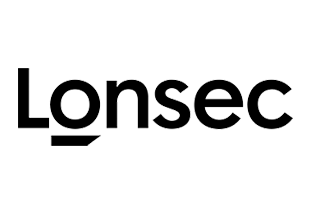Unsurprisingly the impact of COVID-19 was the main discussion point during this August reporting season, with many companies focused on getting through the current environment and preparing or modifying their business models to succeed in the new COVID environment. But overall the reporting season was better than expected with some sectors such as consumer discretionary and online retail seeing huge increases in sales, benefiting from the government stimulus and the structural shift to online retail due to the lockdowns.
Lonsec’s Portfolio Manager for Listed Products, Danial Moradi, takes a look at the key themes coming out of the August 2020 reporting season.
Reporting season highlights
- Whilst perhaps the most challenging period since the Global Financial Crisis, the August 2020 reporting season turned out to be better than expected with the initial impact of COVID-19 less than initially feared.
- COVID-19 and its impact on the corporate sector was at the centre of this reporting season, with companies focusing on adjusting their business models to prosper in a “COVID normal” environment.
- Overall, the market experienced negative earnings growth over the year, but there were also some positive surprises, particularly in the retail and technology sectors, largely driven by the shift in consumer spending.
- Consumer Discretionary was amongst the top performing sectors in August, with the sector benefiting from government stimulus, particularly online retail which saw a surge in sales during the lockdown from people spending more time at home.
- Banks, on the other hand, saw profits and dividends diminish whilst Energy and Industrials also saw sharp declines in earnings impacted by the lockdowns and restrictions.
The August 2020 reporting season was better than initial expectations, with the positive impact of the unprecedented levels of government stimulus buffering the potential extent of the decline in earnings and dividends over the June quarter. Overall, market earnings per share (EPS) declined by 20% in FY20, with all sectors, excluding Technology and Discretionary Retail, experiencing negative earnings growth over the year. Banks, Energy and Industrials saw the sharpest declines in earnings, capturing a number of industries adversely affected by the lockdowns and restrictions.
At a stock level, within the ASX 200 universe, JB Hi-Fi (JBH), Reliance Worldwide (RWC), Cleanaway Waste Management (CWY), IDP Education (IEL) and WiseTech Global (WTC) reported stronger than expected performances, while Telstra (TLS), AGL Energy (AGL), Insurance Australia Group (IAG), Origin Energy (ORG), Seek (SEK) and Vicinity Centres (VCX) delivered relatively weaker results and forward guidance.
Unsurprisingly, the COVID-19 pandemic and its knock-on impacts on the corporate sector was front and centre during reporting season, with many companies focusing on getting through the current phase relatively unscathed and preparing their business models to prosper in a “COVID normal” environment. This uncertainty has made short term forecasts almost impossible for many companies, with many refraining from providing FY21 earnings guidance. The next formal opportunity for company guidance updates to be reinstalled is at the time of the respective AGMs, to be held in October and November for the June financial year-end stocks.
Despite the lockdowns, several retailers in the Discretionary segment reported material increases in sales over the June quarter, with the sector benefiting from ongoing government stimulus, mortgage deferrals and early superannuation releases. This trend seems to have continued into the new financial year, with JB Hi-Fi (JBH) and Harvey Norman (HVN) reporting comparable sales growth in excess of 40% in July 2020, while furniture retailer Nick Scali stated that sales have grown by 70% over the same period.
Online Retail and e-commerce have also been amongst the main beneficiaries of the COVID-19 pandemic, with many online businesses seeing a huge influx of orders during the lockdowns. This was evident in the performances of the likes of Afterpay (APT), Kogan.com (KGN), Temple & Webster (TPW) and Redbubble (RBL), with many reporting sales growth in excess of 100% in the June quarter. While these elevated levels of sales activity are unlikely to continue post the lockdowns, COVID-19 has to some extent expediated the structural shift to online retail, a trend we expect will continue for some time given the relatively low penetration of online sales (c.10%) in Australia.
While COVID-19 has been a tailwind for many retailers, its impact on the retail Real Estate segment has been far from positive. While the Office and Industrial sectors have to-date been relatively resilient given the challenging market conditions, rent waivers, increasing provisions, negative leasing spreads and the prospects of higher vacancy rates have to-date resulted in asset price devaluations of 10-15% in the retail sub-sector, with rent collections tracking at around 50%. Retail REITs such as Scentre Group (SCG), Vicinity Centres (VCX) and GPT Group (GPT) are continuing to see pressure from tenants regarding rent reductions and abatements, a trend which is unlikely to subside until rents are rebased to more sustainable levels given the structural shift to online sales for many retailers. This has resulted in the sector trading at a significant discount to net asset value, implying the likelihood of further asset price devaluations over the medium term.
Looking ahead, at this stage consensus estimates are suggesting a 10% rebound in earnings in FY21, however, this is likely to remain volatile over the year, with further COVID-19 related restrictions likely to postpone an eventual economic recovery into FY22. At the sector level, while a more stable earnings growth profile is expected from the Healthcare and Consumer Staples sectors, earnings within the Banks, Insurance, Gaming and Industrials sub-segments are expected to rebound sharply in FY21 and FY22, implying a trough in earnings in FY20.
The sharp earnings contraction across the market in FY20 has also resulted in a large decline in market yield, reflecting significant declines in payout ratios in the second half, with many companies not declaring a final dividend. Looking ahead, the consensus dividend yield for the market in FY21 is currently around 3.3%, which is still 30% below the long run average for the ASX 200 benchmark. The deferral or reduction of bank dividends has played a large role in this, and at this stage, given the current earnings projections for the sector, overall market yield is unlikely to return to FY19 levels until FY23.
From a valuation perspective, the market has largely tried to see through the COVID-19 impact on earnings in FY20, with spot valuation metrics in many segments approaching historical peaks. At the same time, the premium paid for earnings certainty and quality remains elevated, supported by historical low interest rates and increasing uncertainty about the shape of the economic recovery post the expiry of stimulus measures in 2021. This is likely to result in periods of elevated volatility in the market, particularly if the economic recovery is postponed into 2022.
This information is provided by Lonsec Investment Solutions as a corporate authorised representative of Lonsec Research Pty Ltd who hold an AFSL number 421445. This is general advice, which doesn’t consider your personal circumstances. Consider these and always read the product disclosure statement or seek professional advice prior to making any decision about a financial product. You can access a copy of our financial services guide at lonsec.com.au
This video is provided by Lonsec Investment Solutions Pty Ltd ACN 608 837 583, a Corporate Authorised Representative (CAR 1236821) (LIS) of Lonsec Research Pty Ltd ABN 11 151 658 561 AFSL 421 445 (Lonsec Research). LIS creates the model portfolios it distributes using the investment research provided by Lonsec Research but LIS has not had any involvement in the investment research process for Lonsec Research. LIS and Lonsec Research are owned by Lonsec Holdings Pty Ltd ACN 151 235 406.
Past performance is not a reliable indicator of future performance. This is general advice, which doesn’t consider your personal circumstances. Consider these and always read the product disclosure statement or seek professional advice prior to making any decision about a financial product. While care has been taken to prepare the content of this video, LIS makes no representation or warranty to the accuracy or completeness of the information presented, which is drawn from public information not verified by LIS. The information contained in this video is current as at the date of publication.
Copyright © 2020 Lonsec Investment Solutions Pty Ltd ACN 608 837 583




